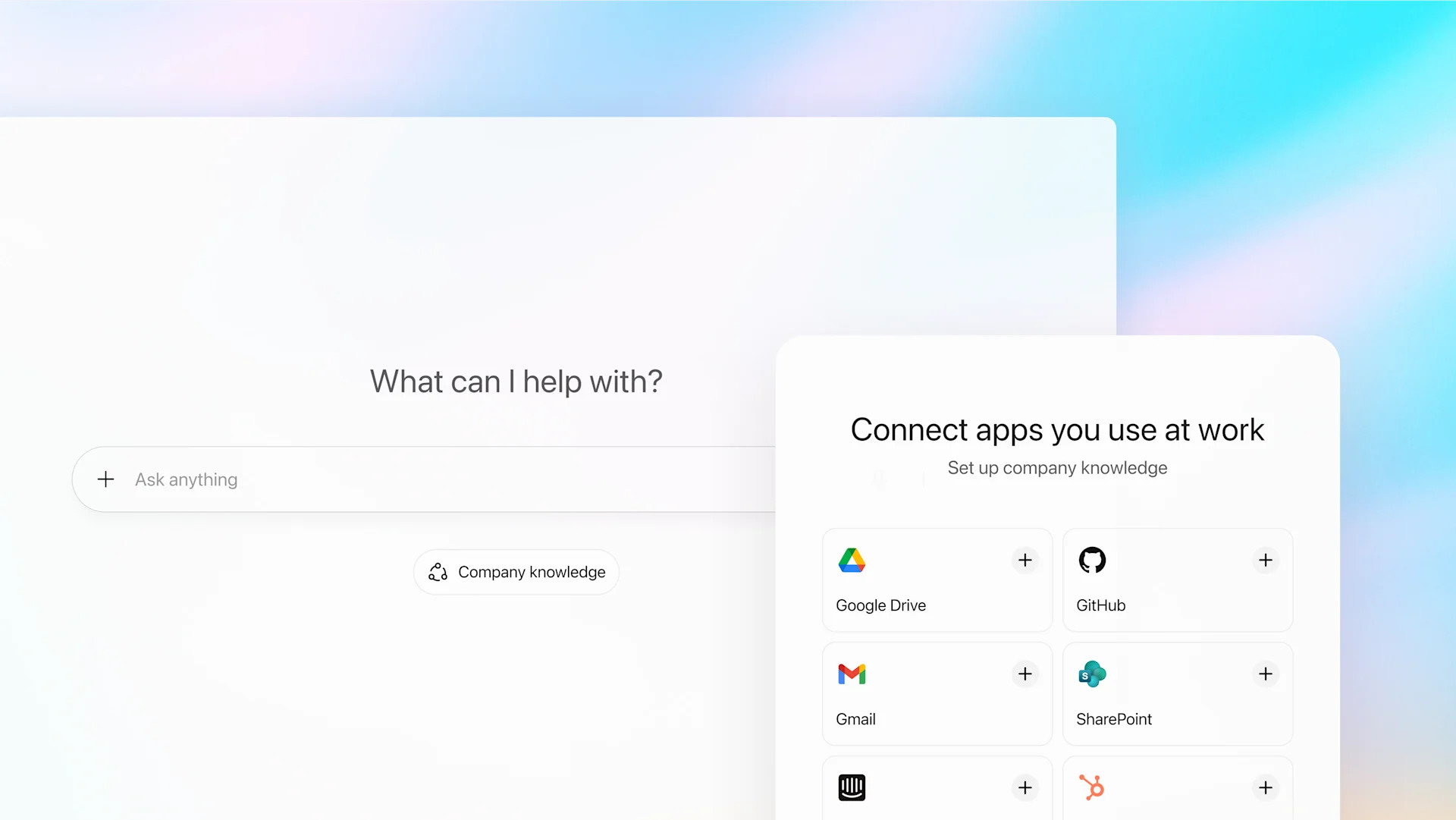“`html
OpenAI Enhances ChatGPT with Company Knowledge Feature for Businesses
OpenAI has introduced a significant update to ChatGPT, aimed at enhancing productivity for business, enterprise, and education users. The new feature, termed “company knowledge,” utilizes an advanced version of the GPT-5 model to streamline the process of searching for information within workplace applications. This update allows users to access and analyze data from multiple platforms, including Slack, SharePoint, Google Drive, and GitHub, without the need to switch between different applications.
The primary objective of the company knowledge feature is to transform ChatGPT into a conversational search engine. This tool enables users to efficiently sift through vast amounts of workplace data to retrieve the information they need quickly. By integrating with various applications, ChatGPT aims to enhance the user experience, making it easier to access relevant data in real-time.
This update builds upon beta features that were initially introduced in June, expanding the capabilities of ChatGPT beyond previous app connections. OpenAI has indicated that the GPT-5-powered company knowledge update has been specifically trained to conduct simultaneous searches across multiple sources, resulting in more comprehensive and accurate responses.
Key Features of the Company Knowledge Update
One of the standout features of this update is the inclusion of clear citations in every response. This transparency allows users to verify the sources of information, fostering trust in the results provided by ChatGPT. For instance, if a user prepares for an upcoming client call, ChatGPT can generate a detailed briefing by aggregating relevant information from various sources, such as:
- Recent messages from the user’s Slack account
- Key details from emails exchanged with the client
- Notes from previous calls stored in Google Docs
- Escalations from Intercom support tickets since the last meeting
Additionally, the company knowledge feature is capable of addressing ambiguous questions. For example, when asked about the status of company goals for the upcoming year, ChatGPT can conduct multiple searches across different sources and viewpoints to provide a well-rounded answer. This capability is particularly valuable in resolving conflicting information that may arise from various departments or platforms.
Advanced Functionalities
To enhance its functionality, the tool employs date filters and can perform analytical reasoning while conducting searches. This allows ChatGPT to locate time-sensitive information effectively, which is crucial for businesses operating in fast-paced environments. For example, if a user needs to know the latest sales figures, ChatGPT can filter results to only include data from the last quarter, ensuring that the information is relevant and up-to-date.
However, it is important to note that users must manually select the company knowledge feature when initiating new conversations. While ChatGPT can still answer questions using connected applications without the company knowledge feature activated, the depth of responses and the inclusion of detailed citations may be limited. This design choice encourages users to actively engage with the tool, ensuring they leverage its full capabilities.
Future Enhancements and Market Context
OpenAI has acknowledged that updates are expected in the coming months, which will further expand the capabilities of the company knowledge feature. These enhancements may include improved integration with additional applications and functionalities, thereby broadening the scope of workplace data ChatGPT can access.
The introduction of the company knowledge feature places OpenAI in a competitive landscape alongside other AI developers. For instance, earlier this month, Anthropic launched a similar tool called “Skills” for its Claude AI, which aims to enhance AI agent capabilities for specific work tasks. This escalation in AI development reflects a broader trend where businesses increasingly rely on AI technologies to boost productivity. As organizations strive for efficiency, features like company knowledge are poised to become essential tools in the modern workplace.
Historical Context of AI in Business
The integration of AI into business processes is not a new phenomenon. Over the past decade, companies have increasingly adopted AI technologies to optimize operations, enhance customer service, and drive decision-making. From customer relationship management (CRM) systems to predictive analytics, AI has transformed how businesses operate. The advent of conversational AI, like ChatGPT, marks a new chapter in this evolution, enabling more intuitive interactions with technology.
Historically, AI tools were often siloed, requiring users to navigate between multiple platforms to gather information. The company knowledge feature from OpenAI represents a significant step towards breaking down these silos, offering a unified interface for accessing diverse data sources. This shift not only improves efficiency but also fosters a culture of collaboration, where team members can easily share insights and findings.
Implications for the Future of Work
As the technology continues to evolve, it is likely that such innovations will play a crucial role in shaping the future of work. The ability to access real-time, accurate information can empower employees to make informed decisions quickly, enhancing overall productivity. Moreover, as remote and hybrid work environments become the norm, tools like ChatGPT with company knowledge will be indispensable in maintaining connectivity and collaboration among team members.
In summary, OpenAI’s latest update to ChatGPT represents a significant advancement in how workplace information can be accessed and utilized. By integrating with popular business applications and providing comprehensive, citation-backed responses, the company knowledge feature is designed to enhance productivity and streamline workflows for users across various sectors. As businesses continue to navigate the complexities of the modern workplace, embracing such AI-driven solutions will be essential for maintaining a competitive edge.
“`




